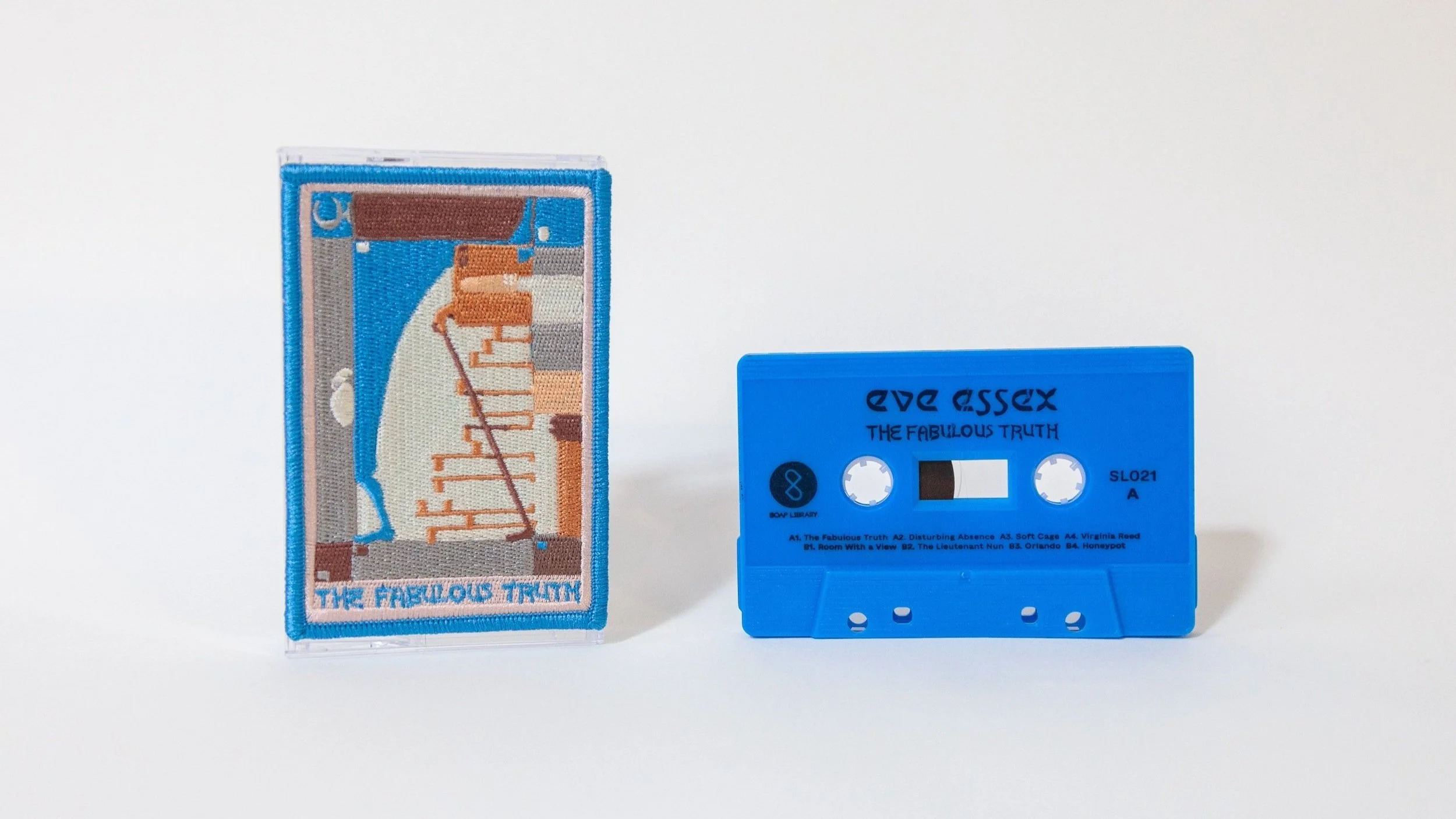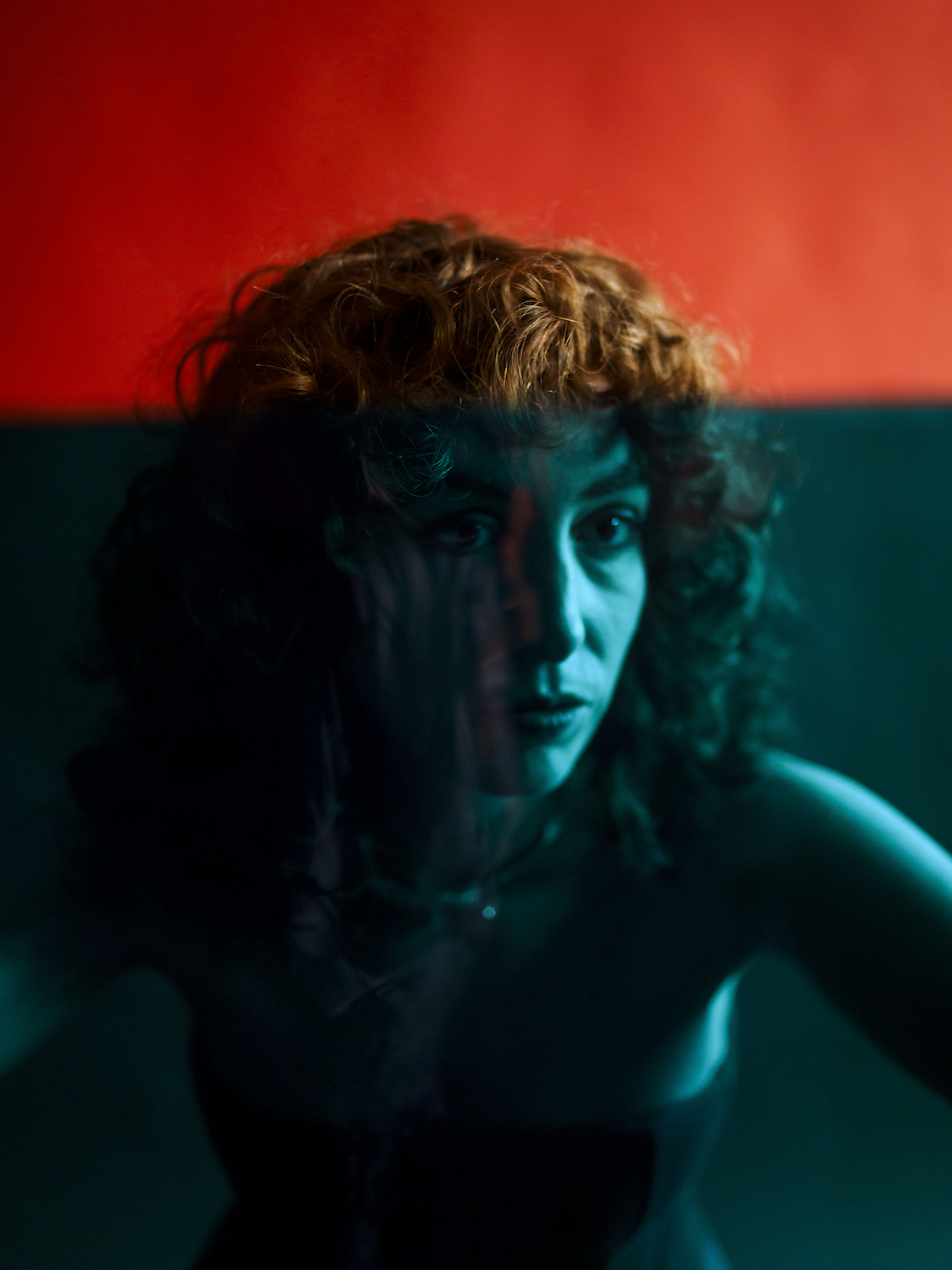Eve Essex — The Fabulous Truth
The Fabulous Truth is an homage to the anti-hero — an eight song suite that explores moral ambiguities, life in the shadows, and the possibility of escape from social expectations. The second full-length album by composer and multi-instrumentalist Eve Essex, The Fabulous Truth is both an ecstatic paean to liberty and an intense look at the psychological prices paid for seeking independence in an unforgiving world.
Drawing on influences as diverse as trip-hop, outlaw country, kosmische, spiritual jazz, avant-garde classical, and — yes — musical theater, Essex sets jewel-like portraits of rebellion against a velvet-black background of stormy electronics and uneasy minimalism. Intimate lyrics — confessional in tone, literary, striking in their bold mutations of classic songwriting genres — are contrasted with brooding compositions that evoke long journeys across vast landscapes and continents; wagon trains and ship voyages taken in pursuit of a new life, the view from a satellite orbiting the Earth at high speed. The Fabulous Truth is an album about freedom and boundaries, intimacy and security, raising questions about who you let into your life and why.
Title track “The Fabulous Truth,” featuring guitarist jenghis, opens the door with threatening deep bass drones underpinned by heartbeat-like kicks. Essex’s soulful and controlled vocals glide above the low-end menace, singing of disappearance, hinting at a difficult choice between needing security and wanting freedom. “Disturbing Absence” holds the listener in the same sonic space of programmed drums and synthetic textures, punctuated with bursts of percussive melody from kalimba and saxophone. For the ambient instrumental “Soft Cage,” featuring guitarist Luke Moldof, Essex places her melodically-inventive approach to saxophone front and center, taking the listener deeper into zones of anxiety, tumbling and rolling across waves of organ reminiscent of an all-night-flight by Terry Riley.
“Virginia Reed” is the first of the album’s three biographical vignettes. From the moody, nocturnal electronica of the opening tracks emerges a piece of impeccably scored chamber pop, featuring woodwinds, strings, bass, drums, piano and intricate backing vocals. Essex sings from the perspective of Virginia Reed, who, aged 13, survived the ill-fated Donner Party. Traumatized by her gruesome experiences traveling west, she writes a letter to her cousin warning of the grave dangers she faces on the trip to California. Here, Essex’s voice swoops and soars, channeling a vivid sense of trouble and pain. “Room With a View” returns the listener, briefly, to the electronic space of the opening suite of songs, as a shimmering, slowly-evolving organ and bass refrain gradually gives way to a tense and urgent piccolo. The song expresses a desire for privacy and independence, but it also evokes a state of paranoia — the feeling of being physically and digitally surveilled, and an ambiguous pleasure taken in the collapse of real, electronic, and mental space.
The second portrait, “The Lieutenant Nun,” is written in the style of a classic outlaw country ballad. In the only track accompanied by a live backing band, Essex tells the real-life story of Antonio de Erauso, a renegade nun who escaped convent life and became a fugitive and a soldier, living for years disguised as a man, until being arrested and forced back into the religious order. Where the title and lyrics of “Room with a View” subtly allude to Virginia Woolf’s classic essay A Room of One’s Own, the third song in the album’s biographical gallery is adapted from Woolf’s novel Orlando. A gentle waltz for autumnal strings and plaintive woodwinds, embellished with delicate cascades of pedal steel, the song fluctuates between sweet melody and jarring dissonances — one foot in 1920s England, the other in 1970s America — an oblique formal nod to the novel’s time-traveling, gender-fluid protagonist.
Closing the album is the stately torch song “Honeypot,” featuring downtown New York music legend Peter Zummo on trombone and euphonium. “Honeypot” is the ballad of a ransomware hacker, sensual, jazzy, and shot through with a sense of threat. “I’ll make my terms clear,” Essex sings, “let you know how I’ll waste you to rubble.” The elusive ‘fabulous truth’ this album searches for is liberating and disquieting in equal measure.
Eve Essex is a composer and multi-instrumentalist based in Brooklyn, NY. She performs with woodwinds and voice, accompanied by instrumental ensembles, and by arrangements that use synthesizers, drum machines, live processing, and other sounds. Her work slides easily from structured electronic pop to open-ended melodic improvisation and big-band arrangements. She has scored film soundtracks, written music for installation and performance art, and explored prog, jazz, and electroacoustic ideas with groups including The Fabulous Truth, Das Audit, and a host of other collaborations. Essex’s debut solo album, Here Appear, was jointly released by Soap Library (cassette) and Sky Walking (LP) in 2018. In the summer of 2024, she will be Composer In Residence at Crosstown Arts in Memphis, TN. As a featured instrumentalist, she has contributed to works by The God In Hackney, Peter Gordon & Love of Life Orchestra, James K, Kevin Kenkel, Liturgy, Colin Self, Mike Shiflet, UCC Harlo, and Peter Zummo, among others.
The Fabulous Truth releases on June 21, 2024 via Soap Library in digital, cassette, and LP formats — a first for the label. Cassettes are accompanied by an embroidered patch that mirrors James JA Mercer’s cover artwork.





